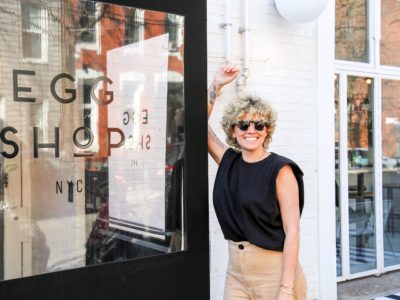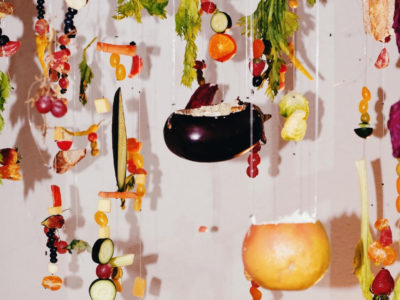
Urban farming isn’t just eco-friendly, it’s entrepreneurial too
Urban farming isn’t just eco-friendly, it’s entrepreneurial too
BY: DANIEL SPIELBERGER
A new kind of entrepreneur is popping up. Instead of dressing in suits and ties, they wear jeans, sun hats, and sneakers. And instead of hustling in a penthouse office, they spend their days in the dirt, planting seeds and tending to the land. Meet the urban farmer entrepreneur. It’s well-known that commercial agriculture is depleting our topsoil reserves, adding to our carbon footprint, and polluting our waters. Urban farming offers a smart, clean solution by growing food from what otherwise would be wasted space. Regardless of the size of their business, these entrepreneurs are using digital platforms to make an an eco-friendly living and educate others about the positive effects of eating, buying, and growing local produce.





On a typical day, 24-year old Sophie Pennes is hopping betweens clients’ homes, consulting with them on how to grow produce in their backyards. The LA native started her own company, Urban Farms LA, at the age of 19. Following a brief foray into the fashion world of New York City, Sophie moved back home to Los Angeles for the summer. In the midst of a stasis, she helped her parents transform their front yard into a mini-garden filled with fruits, herbs, and vegetables. “I became obsessed,” Sophie said. She began researching urban farming and experimenting with growing her own produce. By the end of the summer, her interests completely shifted away from fashion and she launched a blog and Instagram devoted to her newfound passion—farming. Social media became an instrumental part of her success. After posting photos of her tomatoes, zucchinis, and cucumbers on Instagram, friends and strangers started contacting her, seeking advice on their own gardens. These days, Sophie finds most of her clients on the neighborhood platform app Nextdoor and through word of mouth.
Most of Sophie’s clients know next to nothing about farming. During her first consultations, she comes up with a produce wishlist based on their eating habits, access to irrigation, and the amount of shade in their backyard. Once she sets up their garden boxes and plants their seeds, she gives them a brief lesson on gardening, covering everything from watering techniques to organic pesticides. Afterwards, she regularly checks in on her clients to ensure everything is growing accordingly. “I want my clients to never buy produce at a grocery store ever again!” Sophie exclaimed. While Sophie’s up and coming business revolves around face-to-face consulting, other urban farmer entrepreneurs have taken the digital route, teaching people how to grow their own produce through vlogs.
Curtis Stone is an urban farm guru. Over the last seven years, the British Columbia based farmer and consultant has launched a wildly successful YouTube channel, blog, and online course. Before becoming a multimedia farming mogul, Curtis was a touring musician living in Montreal. In 2008, he started getting concerned about the environment and negative effects of commercial farming. By 2010, Curtis decided to make a career out of farming and founded Green City Acres in Kelowna, British Columbia.
At first, Curtis didn’t believe he could make any money from farming. So he was surprised when he made over $25,000 profit during his first year. Though merely being one third of an acre, Curtis’s farm now annually generates $75,000 in revenue. What’s the secret to his success? Curtis uses the confines of his small property to his advantage, growing fifteen crops that are “high value, quick growing” and always in demand. In addition to his farming business, Curtis has obtained an international following of students by sharing his wisdom through Skype conversations, webinars, and social media. Curtis urges aspiring urban farmers to always keep it simple — “start lean and with five crops.”
Both Sophie and Curtis view themselves as educators encouraging people to ask more questions about their food. In regards to the future of urban farming, Curtis concluded. “If we can show people, especially kids, that you can make money from farming, more people will get into it.” Sophie echoed his enthusiasm, “Why isn’t everyone doing this?!”





